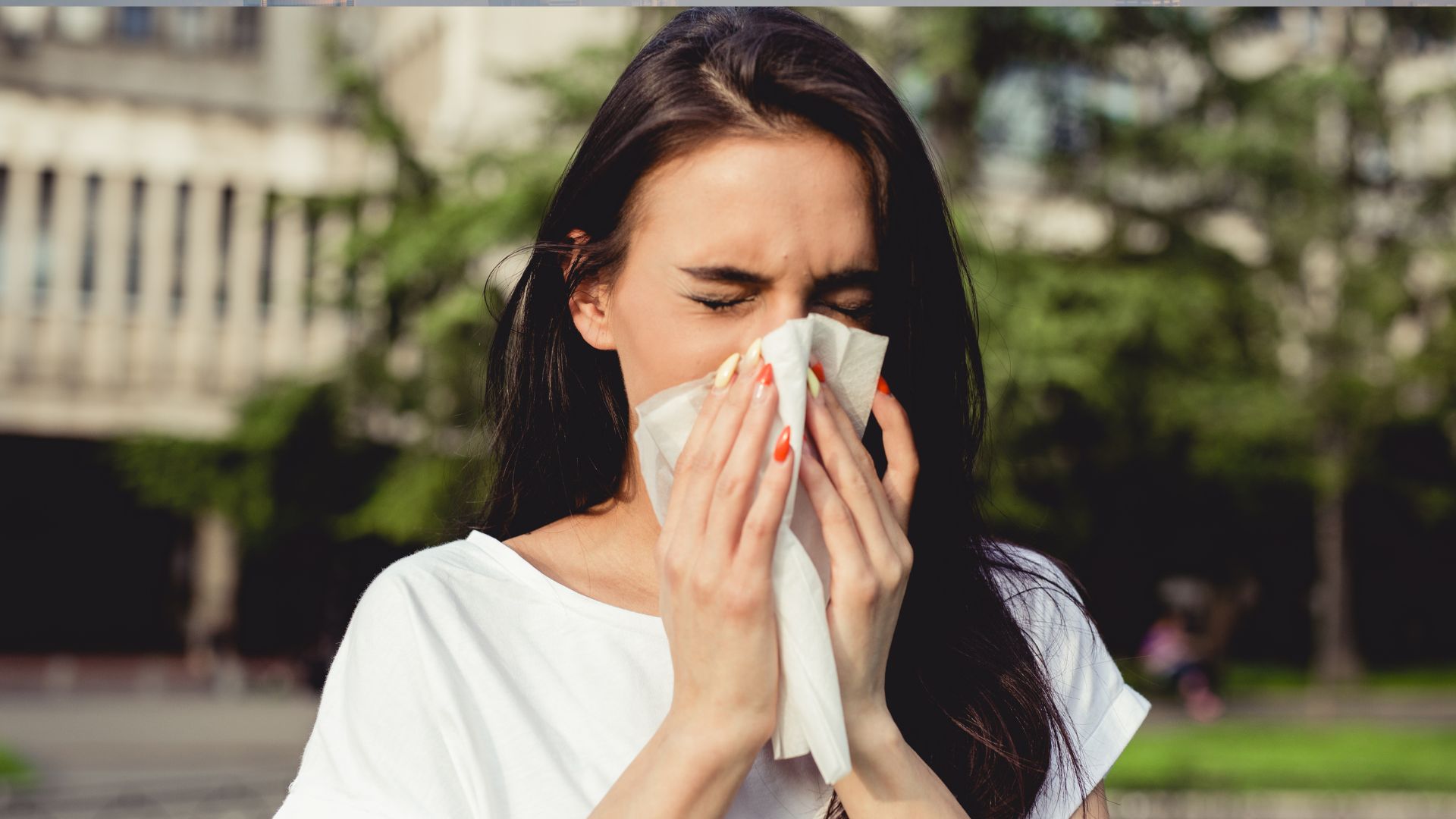Allergic rhinitis is a prevalent condition characterized by inflammation of the nasal passages due to an immune response to allergens. It affects millions of individuals worldwide, leading to bothersome symptoms and impaired quality of life.
Symptoms of Allergic Rhinitis
Nasal Symptoms
Allergic rhinitis commonly presents with symptoms such as nasal congestion, itching, sneezing, and rhinorrhea (runny nose). These symptoms can vary in severity and may worsen upon exposure to allergens.
Eye Symptoms
In addition to nasal symptoms, allergic rhinitis can cause ocular manifestations, including redness, itching, tearing, and swelling of the eyes. This condition is often referred to as allergic conjunctivitis.
Other Associated Symptoms
Some individuals with allergic rhinitis may experience fatigue, irritability, headache, and impaired concentration, especially during periods of heightened allergen exposure.
Common Triggers of Allergic Rhinitis
Environmental Allergens
Outdoor allergens such as pollen from grasses, trees, and weeds are common triggers of allergic rhinitis, particularly during specific seasons.
Seasonal Allergens
Seasonal allergic rhinitis, also known as hay fever, is frequently caused by pollens released during spring and fall, triggering allergic reactions in susceptible individuals.
Indoor Allergens
Indoor allergens like dust mites, pet dander, mold spores, and cockroach droppings can exacerbate allergic rhinitis symptoms throughout the year, especially in poorly ventilated environments.
Diagnosis of Allergic Rhinitis
Diagnosing allergic rhinitis involves a comprehensive assessment, including a thorough medical history evaluation, physical examination focusing on nasal and ocular symptoms, and allergy testing to identify specific triggers.
Management Strategies for Allergic Rhinitis
Effective management of allergic rhinitis entails a multi-faceted approach aimed at reducing exposure to allergens, alleviating symptoms, and addressing underlying immune dysregulation.
Lifestyle Modifications
Air Filtration
Using high-efficiency particulate air (HEPA) filters in homes and workplaces can help remove airborne allergens, improving indoor air quality and reducing symptom severity.
Nasal Irrigation
Regular nasal irrigation with saline solutions can help flush out allergens and mucus from the nasal passages, providing temporary relief from congestion and discomfort.
Dietary Changes
Certain dietary modifications, such as reducing intake of inflammatory foods and incorporating anti-inflammatory nutrients like omega-3 fatty acids, may help alleviate allergic rhinitis symptoms.
Alternative Therapies
Acupuncture
Acupuncture, a traditional Chinese medicine technique involving the insertion of thin needles into specific points on the body, has shown promise in reducing allergic rhinitis symptoms in some individuals.
Herbal Supplements
Herbal supplements like butterbur, quercetin, and stinging nettle extract have been studied for their potential anti-inflammatory and antihistamine effects in managing allergic rhinitis.
Breathing Exercises
Practicing relaxation techniques and breathing exercises, such as yoga and mindfulness meditation, can help reduce stress and improve respiratory function, potentially easing allergic rhinitis symptoms.
Complications of Untreated Allergic Rhinitis
Untreated allergic rhinitis can lead to complications such as recurrent sinus infections (sinusitis), worsening of asthma symptoms, and significant impairment of physical and mental well-being.
Preventive Measures
Implementing preventive measures such as allergen avoidance strategies, timely immunizations, and regular medical follow-ups can help minimize the impact of allergic rhinitis and prevent exacerbations.
Management of Allergic Rhinitis in Children
Managing allergic rhinitis in pediatric patients requires special considerations, including age-appropriate treatment modalities, environmental modifications, and close monitoring of symptom progression.
Impact on Mental Health
Chronic allergic rhinitis can adversely affect mental health, leading to increased stress, anxiety, and depression. It is essential for healthcare providers to address these psychological aspects and provide appropriate support.
Educational Resources and Support Groups
Access to educational resources and participation in support groups can empower individuals with allergic rhinitis to better understand their condition, manage symptoms effectively, and connect with peers facing similar challenges.
Future Perspectives
Ongoing research efforts aimed at unraveling the underlying mechanisms of allergic rhinitis and developing novel therapeutic approaches hold promise for improving treatment outcomes and enhancing the quality of life for affected individuals.
Conclusion
Allergic rhinitis is a common allergic disorder characterized by nasal inflammation and bothersome symptoms. Effective management involves identifying triggers, implementing lifestyle modifications, and utilizing pharmacological and alternative therapies to alleviate symptoms and improve quality of life.
FAQs
- What are the most common triggers of allergic rhinitis?
- Allergic rhinitis can be triggered by various allergens, including pollen, dust mites, pet dander, and mold spores.
- Can allergic rhinitis be cured completely?
- While allergic rhinitis cannot be cured, symptoms can be effectively managed with appropriate treatment and preventive measures.
- How can I differentiate between allergic and non-allergic rhinitis?
- Allergic rhinitis is typically characterized by symptoms that worsen upon exposure to specific allergens, whereas non-allergic rhinitis may have diverse triggers and different symptom patterns.
- Is it safe to rely solely on over-the-counter medications for allergic rhinitis?
- Over-the-counter medications can provide temporary relief from allergic rhinitis symptoms, but long-term use without medical supervision may lead to side effects or mask underlying conditions.
- Are there any natural remedies that effectively alleviate allergic rhinitis symptoms?
- Some natural remedies such as nasal irrigation, herbal supplements, and breathing exercises may provide symptomatic relief for allergic rhinitis, but their efficacy varies among individuals.
About Author:
Dr. Vivek Kumar Pathak: Renowned ENT Surgeon, Senior Professor, and Founder.
Dr. Pathak, ENT surgeon at Kailash Hospital, Senior ENT Professor at Sharda University, and founder of Entegrity Care, brings expertise and innovation to healthcare. Discover the visionary behind Doxtreat Healthcare, shaping the future of ENT care.
Website www.drvivekpathak.com
Call +917838450942
WhatsApp +91 78384 50942
Book an appointment with Dr. Vivek kumar Pathak by filling the form.


